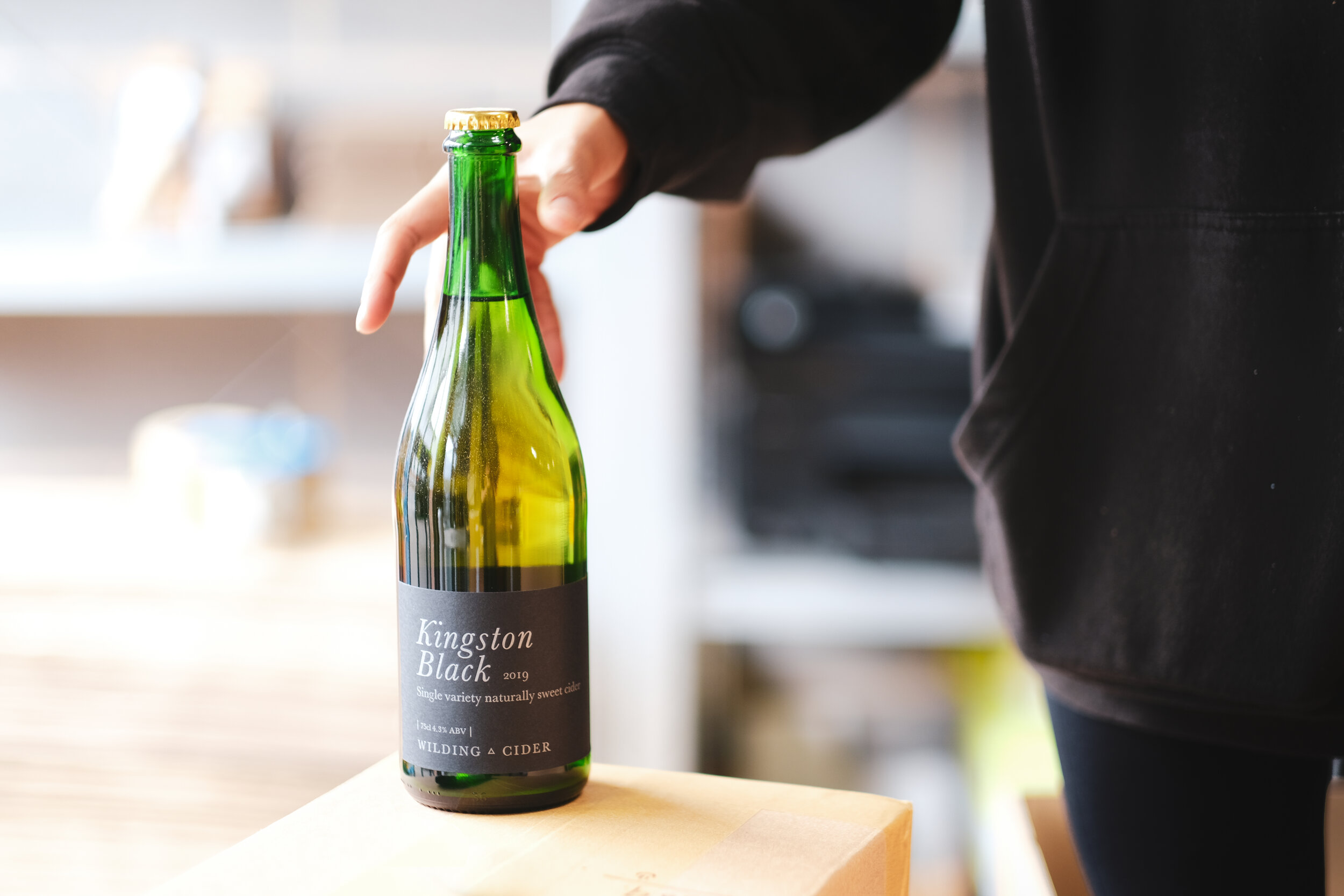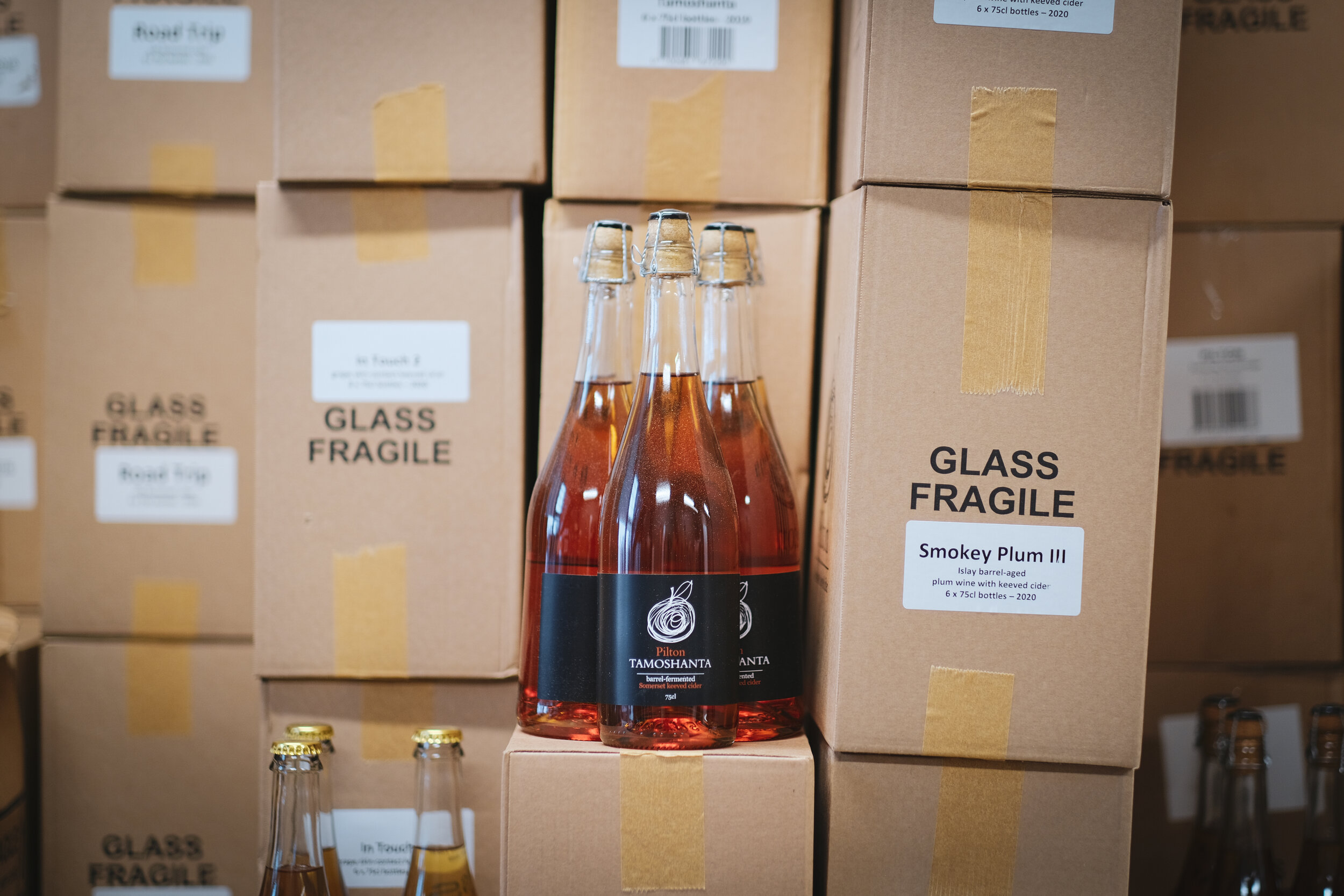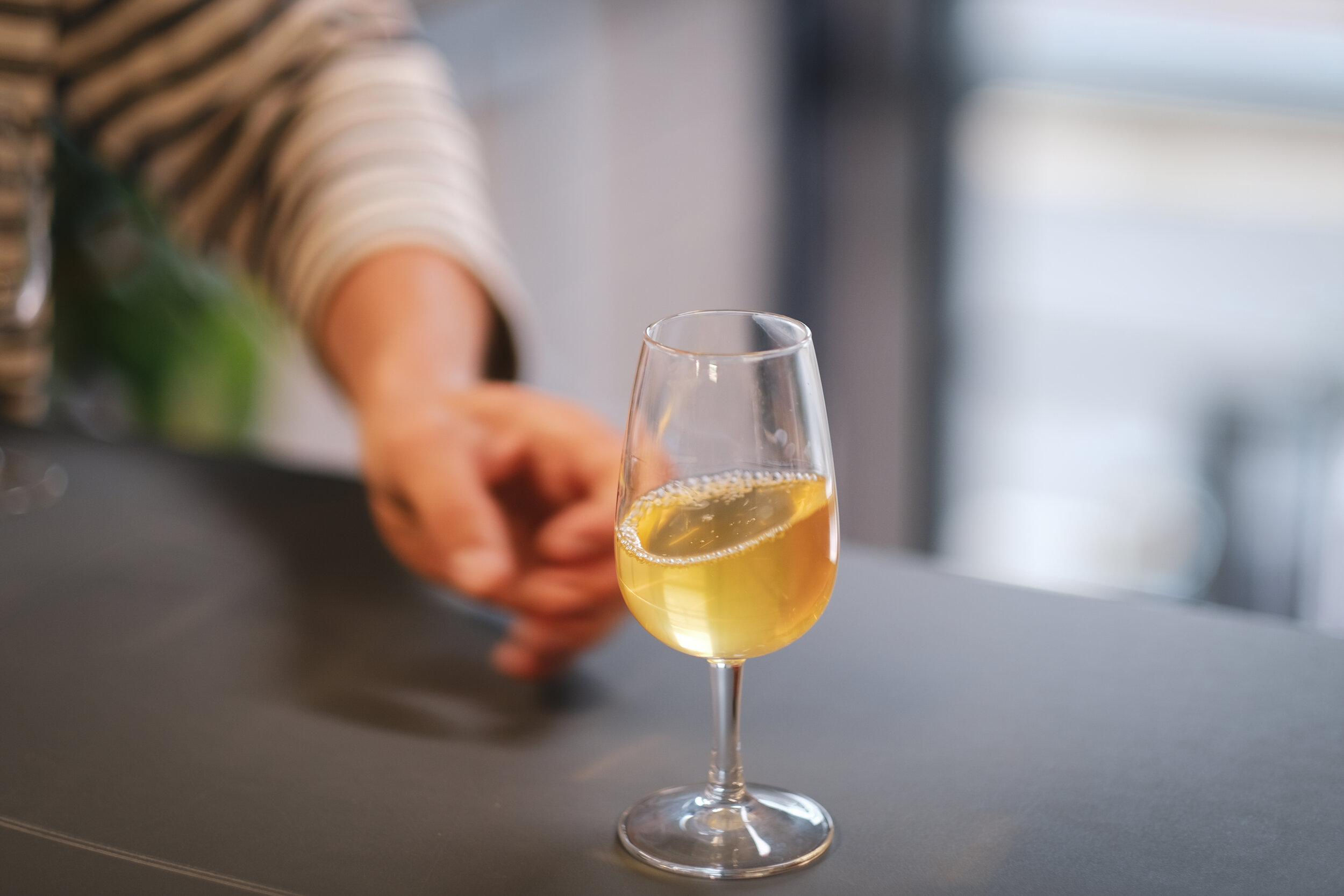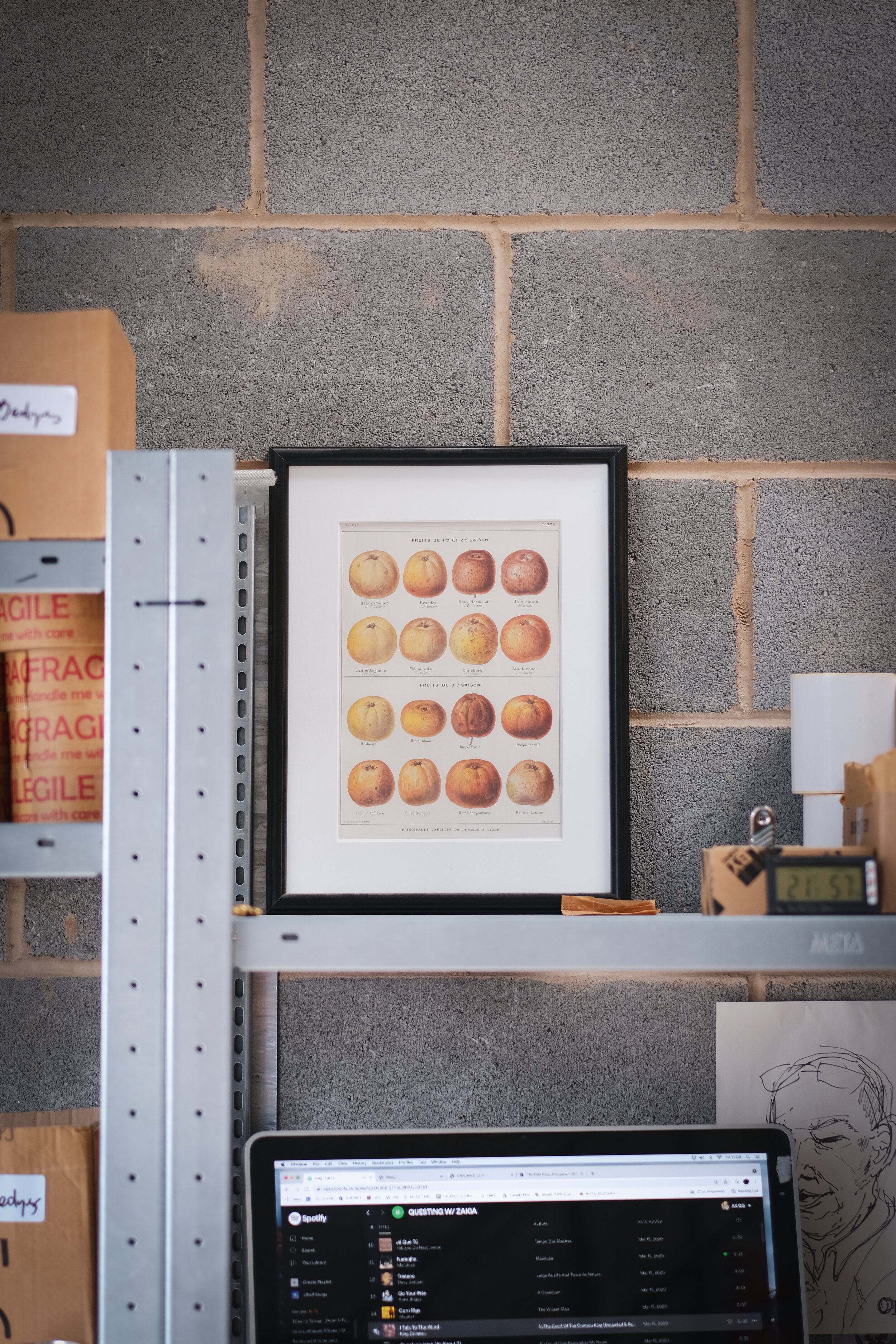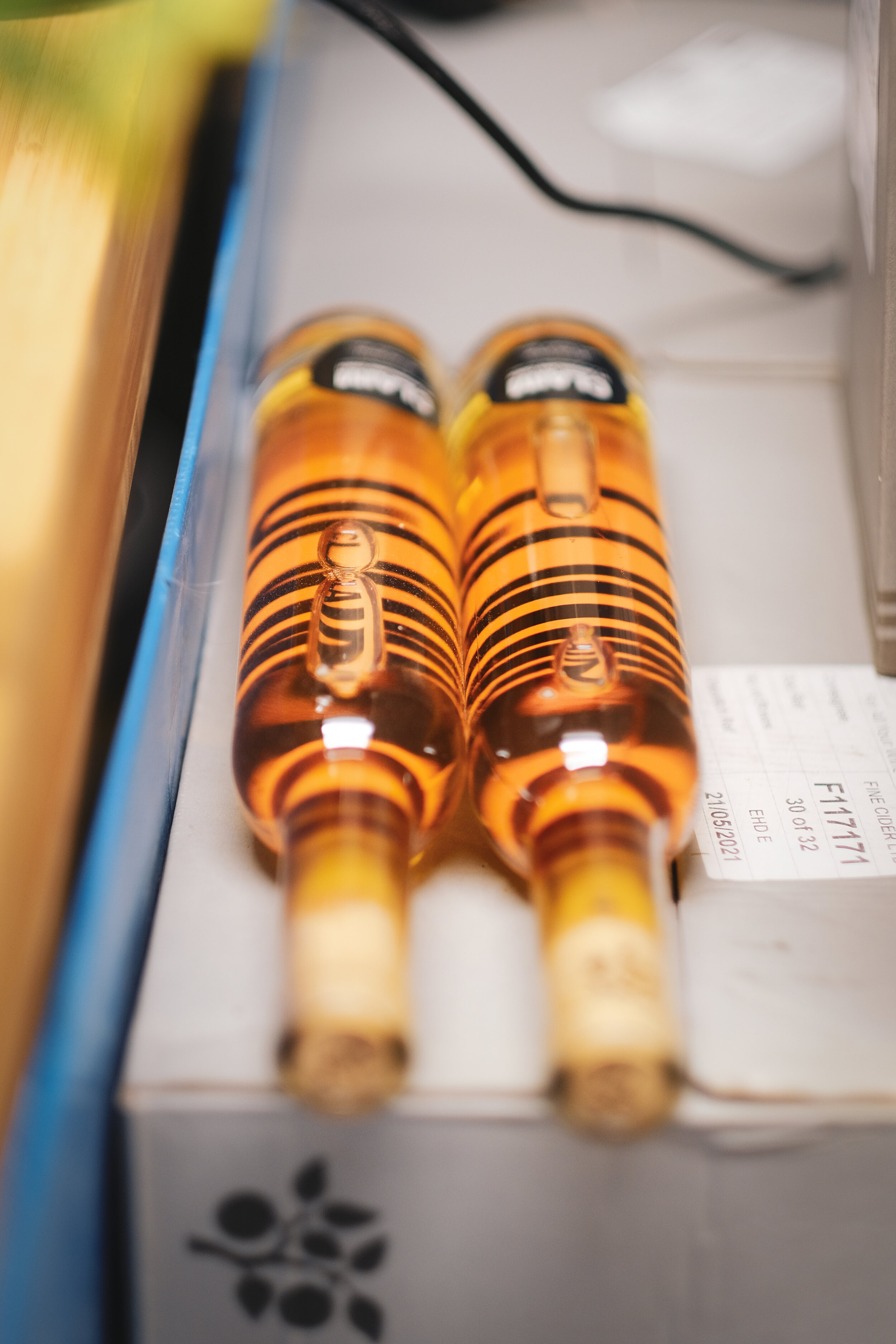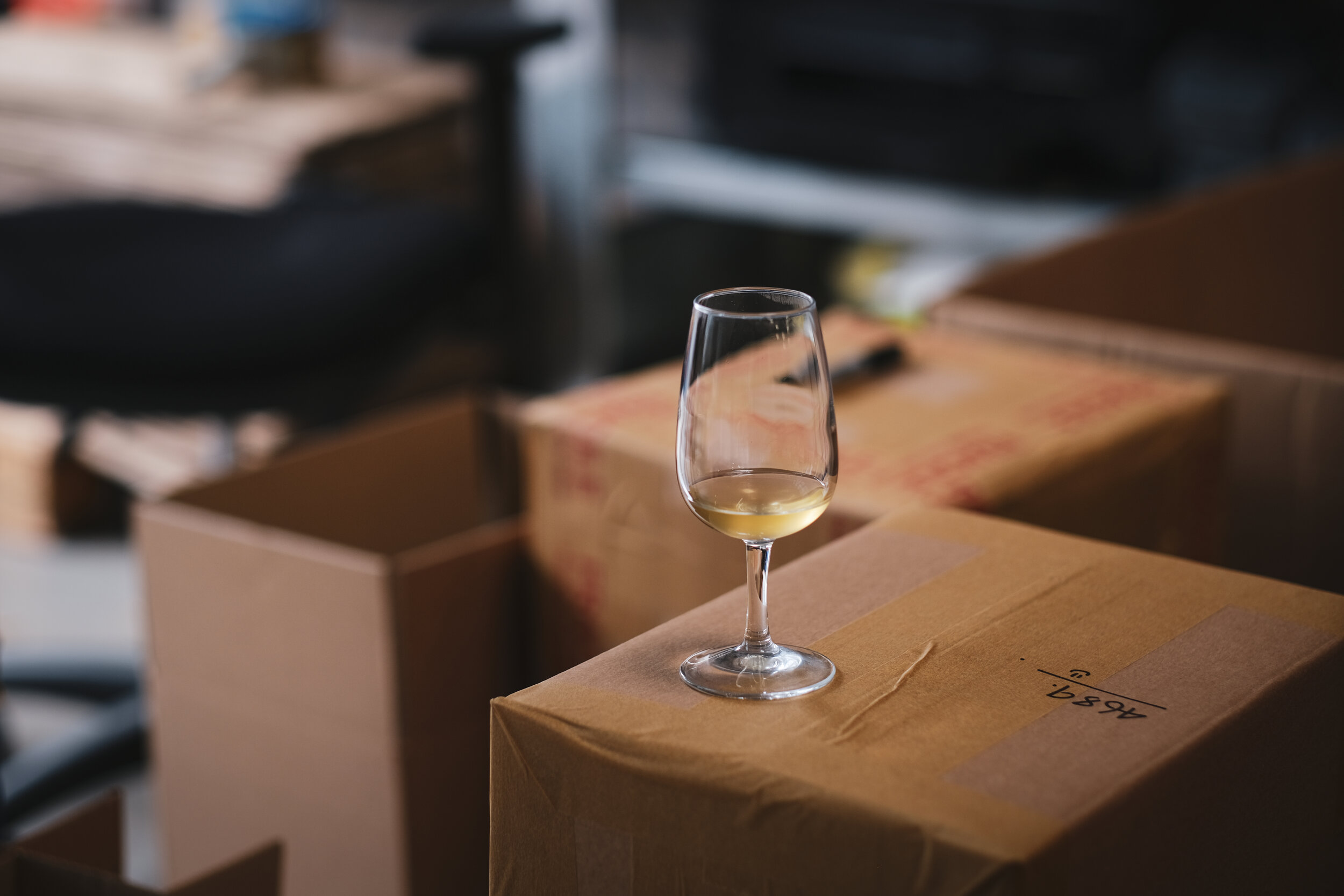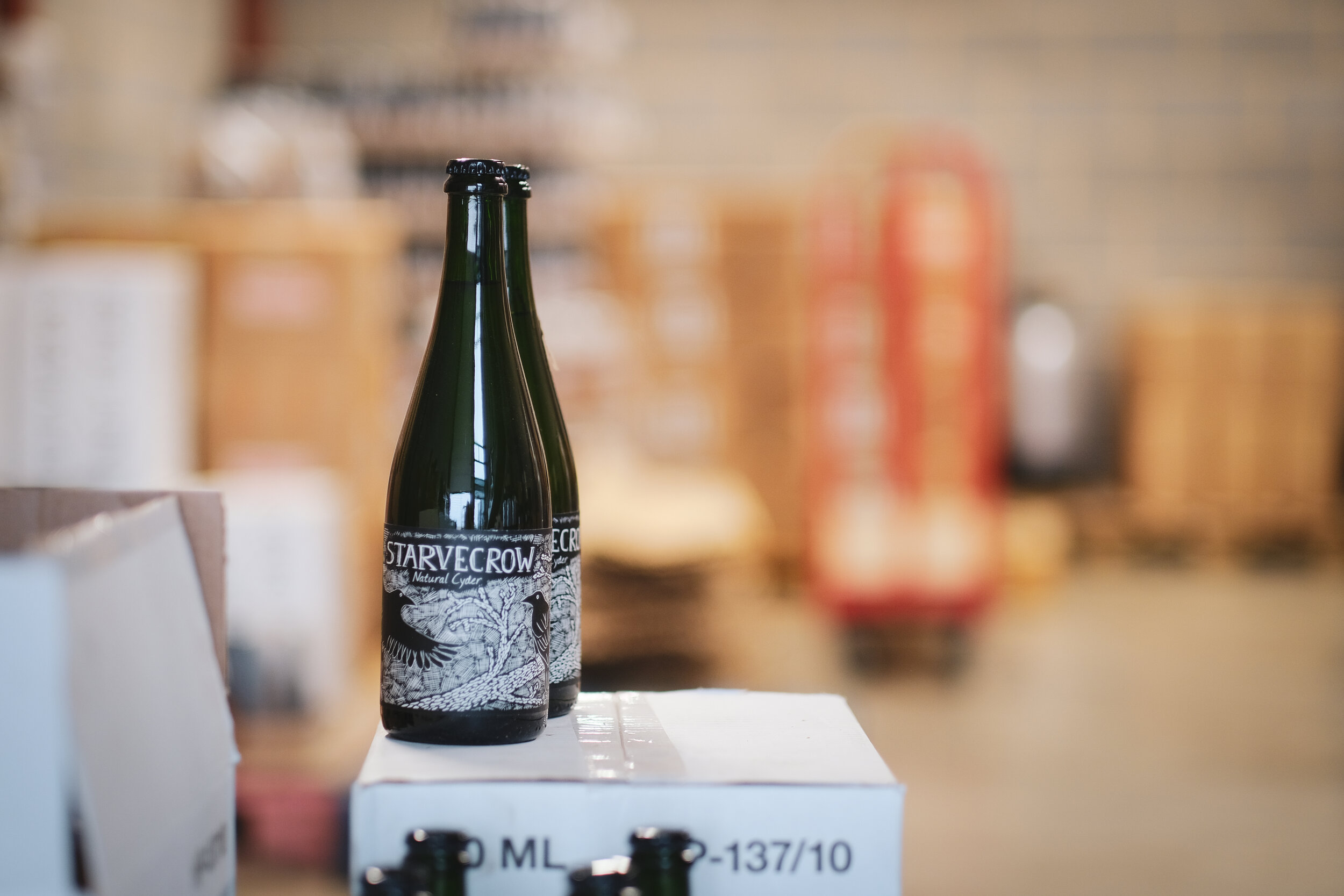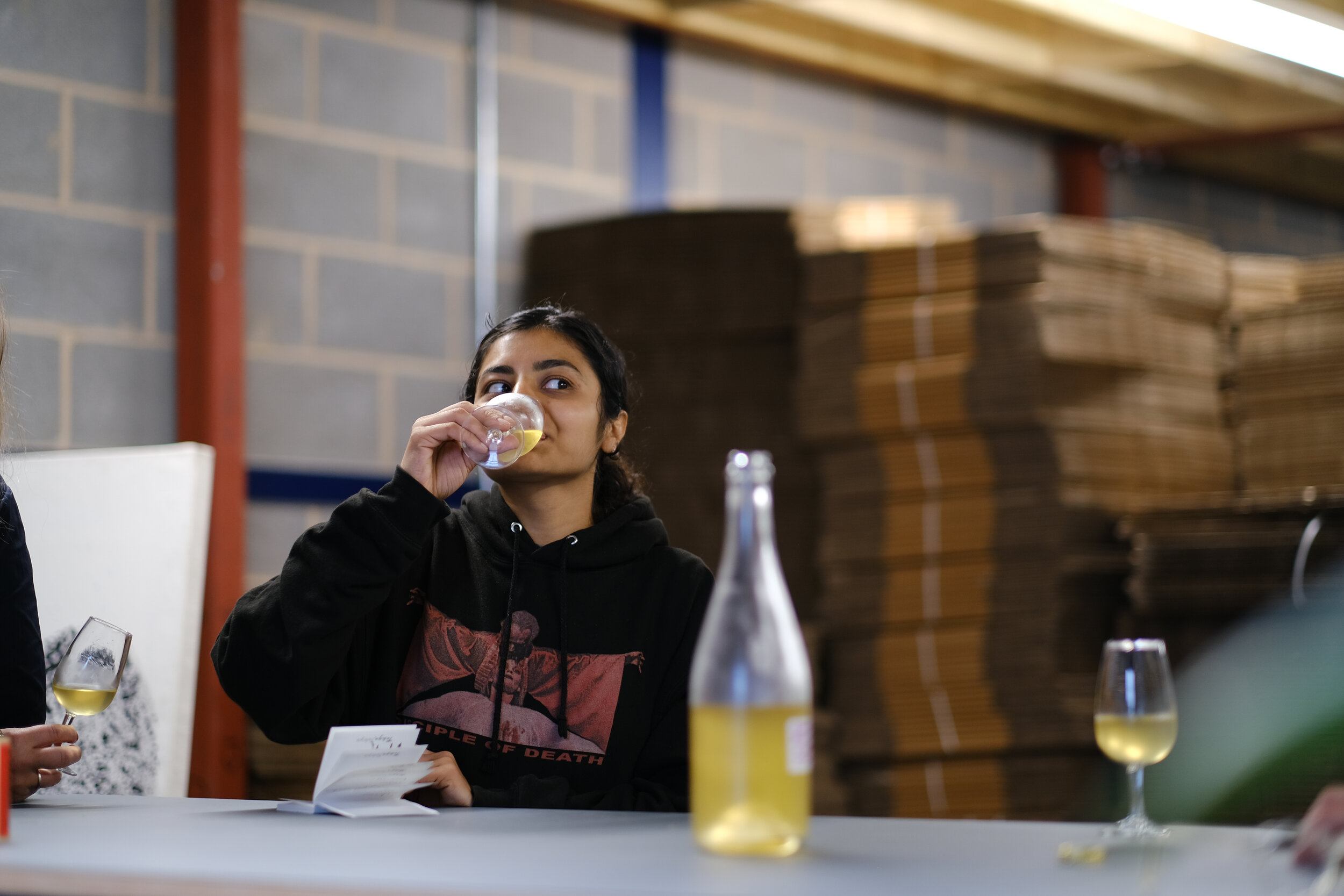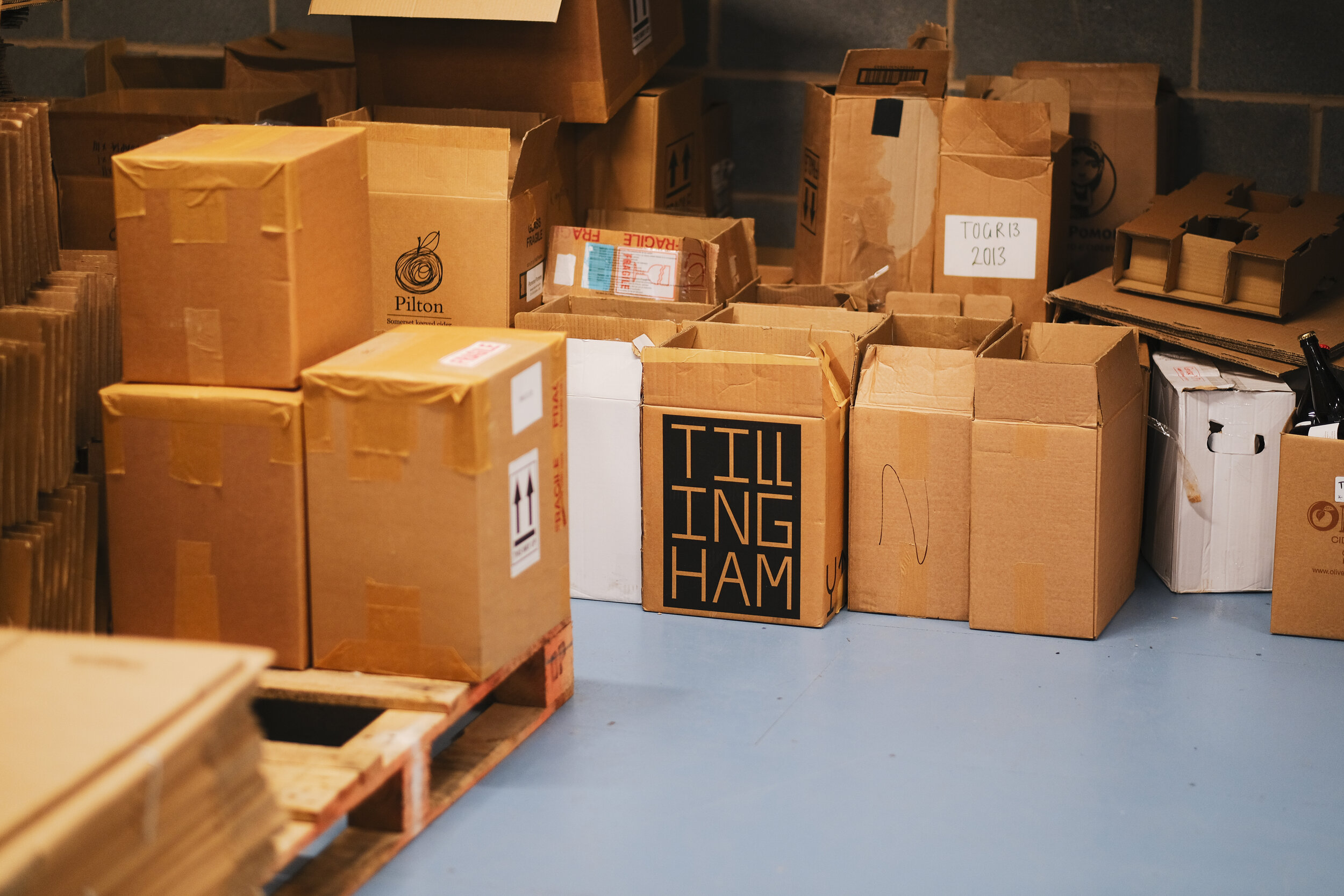A Boy With A Coin — Felix Nash and Fine Cider
In an industry that has in many ways remained unchanged for so long, sometimes a new perspective is needed. Sometimes, you need a complete outsider to come in and crash the party to show you how you could do things differently—and, indeed, better.
Enter Felix Nash, someone with no background in the drinks industry—or any kind of industry for that matter—but armed with an insatiable curiosity, boundless enthusiasm, and multiple revelations of under-the-radar ciders and perries from his roots in Herefordshire and Somerset.
Photography by Lily Waite
The journey of 31-year-old cidermonger Felix and his business, The Fine Cider Company, is one that continues to surprise and exceed expectations. Felix had studied fine art at Falmouth University, then undertook some building work, having learnt to plaster by watching videos on YouTube. Later, he took on some commercial space in London with his brother, and got involved in food and drink by hosting dinners for their friends—including one anniversary meal where they took some Monster Munch snacks and dressed them up. Later, they would also start testing ciders on their guests.
Having grown up in Somerset, and with family connections in Herefordshire, Felix had begun to explore cider further around Ledbury, drinking at lunch and on the weekend. His epiphany came when he and his father tasted Dennis Gwatkin’s Yarlington Mill. It really stood out compared to mass-market fare, and he still savours the memory.
“It had this liveliness and fascination I hadn’t tasted before. Almost like Frankenstein’s monster coming alive with electricity,” Felix says.
Felix had gradually become disillusioned with fine art and wanted to do something more tangible. He suddenly connected the dots: he loved getting out to the countryside, had discovered the landscape, the orchards and the makers in Herefordshire, and thought he could start bringing them into his space in London. “It felt like a revelation,” he tells me. “Why didn’t people know how wonderful this cider is?”
He borrowed some money from his family, along with his own savings—accrued a decade earlier when his mum suggested he walk the three miles to school every day and keep his bus money.
“I made a couple of grand by walking, which was wonderful,” he says. “[It was] the best thing about school to be honest.” Now he could put all this money into his very own fledgling cider distribution company, which after careful consideration, he dubbed Fine Cider, with the aim of dragging cider and perry makers kicking and screaming into the spotlight.
***
Cidermaker James Forbes, co-founder of Little Pomona Orchard and Cidery in Bromyard, Herefordshire, considers Felix a visionary.
“When he started Fine Cider, anyone talking to him thought he was mad,” James tells me. “He had this revelation that properly made cider went really well with food, and also realised that part of the problem was that most of these ciders looked absolutely terrible. So he changed the presentation of the product—which was a big step—to make them look aspirational.”
James says his own cider epiphany was at Oliver’s Cider and Perry in nearby Ocle Pychard, but even these labels were terrible. “I remember thinking: how can you have a liquid like this in this terrible bottle with a label he printed off his home computer? Felix worked this out. These were seminal moments. Craft cider owes a lot to Felix.”
““He’s very dogged; he fell in love with the apples and pears, the perries and ciders, and he’s come at it from a different point of view.” ”
This was 2014, and Felix was constantly battling the old argument that it doesn’t matter what it looks like—just how it tastes. But he knew that amateurish packaging and labels did little justice to stunning, world-class cider, and felt his artistic background could be of help. Despite these challenges, he remained buoyed by enthusiasm for the products he’d found, and their potential.
“I remember back in the early days of the business even trying to source bottles and make labels—I drove the first ever batch to London from Gloucestershire—there and back each day—for three days,” he says. “I hadn’t got the boxes and it arrived unlabelled, in big fruit-packing crates. You’d lift the lid and all these 375ml half-champagne bottles were glowing like bars of gold. That was the first seven thousand bottles of Oliver’s stuff that myself and people I knew labelled by hand.”
Producers were fed up of doing everything themselves, at least according to Tom Oliver, the founder of the eponymously named cider brand. All of the loading up, driving to London, negotiating parking and congestion charges, attempting tastings and sales pitches made it harder to present your brand and products in the best light.
“Then along came Felix and his vision,” Tom says. “Fine Cider.” Cue the arrival of its slick and stylish repackaging and rebranding in 750ml bottles, perfect for chefs, sommeliers and drinkers alike.
Tom believes Felix’s absorption of the story, tastes and possibilities, and his ability to communicate with chefs, sommeliers, shopkeepers, bottle shop owners, and restaurateurs is unique.
“Using his art education, fertile imagination, and loquacious approach to sales, Fine Cider has developed into a growing business,” he says, “representing a roster of half a dozen of the most progressive and imaginative cidermakers in the UK, who are looking to take cider to a higher place.” He openly admits that Oliver’s would not be where it is today without Felix, and Fine Cider.
***
Ben Walgate, founder of Tillingham Wines and Starvecrow Natural Cyder in East Sussex, says Felix is hugely influential and has almost single-handedly helped to consolidate fine cider as a category.
“Who’d have thought we’d see wine lists in top restaurants with sections dedicated to it?” Tom Oliver agrees, noting that five years on, real progress is evident, no more so than by discussions of “what is fine cider?” on social media. Little Pomona’s Susanna Forbes sees Felix as the eloquent champion they needed. “He’s very dogged; he fell in love with the apples and pears, the perries and ciders, and he’s come at it from a different point of view.”
Tom also acknowledges the wonderful team of people who work alongside Felix, such as Fine Cider’s second-in-command, Aga Ciemiega. She joined the business from craft brewery Wild Card in 2019, and almost explodes with enthusiasm: “I bloody love what I do!”
Growing up in Poland, Aga was spared the fate of her British peers, many of whom have told her they were “scarred” by early encounters with poor quality cider. Instead she went “straight to the good stuff”, with no prejudice towards cider or perry. Having been in the drinks business for eight years, she thought she had a good understanding of quality cider and perry, and how to distinguish it from mass-market cider, “but boy, I was wrong.”
Aga says that customers can feel their contagious passion, and conviction that the makers they work with deserve the recognition. She also says Fine Cider is in a unique position to help shape cider and perry’s narrative by developing a language, a drinking culture, even an understanding of food pairing potential.
“We’ve seen the craft beer revolution and explosion of natural wine,” she says. “Now it’s time for cider!”
Felix agrees: “There’s many wonderful things about the world of craft beer, but the provenance, varieties, variation, and seasonality of cider is unique. That’s the bit that’s akin to wine, this admiration for the nature of the complexities.”
***
Felix knows that those watching their pockets may baulk at what they see as the high price of fine cider and perry. But he understands that it’s important to understand the difference between “the mass-market concentrate side, and the creation of something seasonal and wonderful, and long, slow-fermented ciders.”
“Sweetness and succulence are on a whole other level from where the mass market sits,” he says. Cider and perry makers, therefore, have to fight against the fundamental idea that cider is always cheap; that it’s not based on labour or these other factors.
Much of Fine Cider’s offering isn’t what you’d call cheap. However, when you look around at other ciders made predominantly of water and concentrate, and compare the price, for what it is, how it’s done, and the margin (you can pay five or six pounds for a mass market bottle of cider in London pub) Felix says it feels strangely high, given their super-industrialised nature.
“Every cider has its place,” he adds, “but I do take issue if something’s not what it purports to be.” Though, to some, Felix’s prices may seem high, the customer is paying for full-juice cider, with a story and provenance—not just a high mark-up on cider from concentrate.
““The provenance, varieties, variation, and seasonality of cider is unique. That’s the bit that’s akin to wine, this admiration for the nature of the complexities.” ”
He is, however, also aware of an old-school “cider bubble” that can be dismissive and sneering, and he feels the industry must move away from this, and onto a wider stage that invites and welcomes new drinkers in; a sweet spot where the value of a drink is about more than the price. Then the moment people have one revelatory cider, “that’s when they really get it; you’re opening the door to this new sense of possibility,” Felix says. “If you go too extreme, too fast with people it won’t work; start with what people know, then lead them down this wonderful path.”
Giving someone a really accessible drink—like Oliver’s keeved perry, for example—can be a great way to show people something with elements of what they know and like, while still presenting them with something new and exciting.
***
In the past 18 months or so since the Coronavirus pandemic began, Fine Cider swiftly pivoted from an almost entirely wholesale business model to one mainly selling directly to the consumer. It would instantly alert customers about precious new bottles via Instagram messages, shared and spread far and wide by their wholesaler and cidermaker friends alike.
Fine Cider later started the Pommelier Club, a growing, bi-monthly cider and perry subscription club and one of the first of its kind. Since then, they’ve rebalanced their business model, and have not only survived, but ended up in a better position and (more recently) a bigger premises. Their communications tap into methods already at work within the wholesale business, presenting cider in a manner more commonly familiar with wine, with information and imagery that tells a story to the drinker.
“If you put that effort and love into telling the story, you’re transferring your enthusiasm,” Felix tells me. “When you discover what these ciders are actually like, from the history that lies behind them to the nature of the making, the provenance, the variation, the seasonality, it’s such a fascinating thing to try to comprehend. Though I can’t imagine trying to be a cidermaker—it’s way too many variations and choices to contend with.”
Looking to the future, and apart from eventually showcasing producers from abroad, Felix is most excited about an imminent third wave of British cidermakers. The first wave included Tom Oliver and Gregg’s Pit, followed by a bunch of younger makers like Find & Foster, Little Pomoma and Wilding Cider. Now, he’s enthralled by a newer contingent from up in Scotland, where people have started planting traditional cider apples, down to the South East of England, with Rebel Root and Two Orchards Cider, both in Sussex.
“There’s a real next-stage to happen now for cider,” Felix says. “It’s proven its possibility and there’s a bit of buzz. But to what extent it can actually achieve that is the next big question.”













